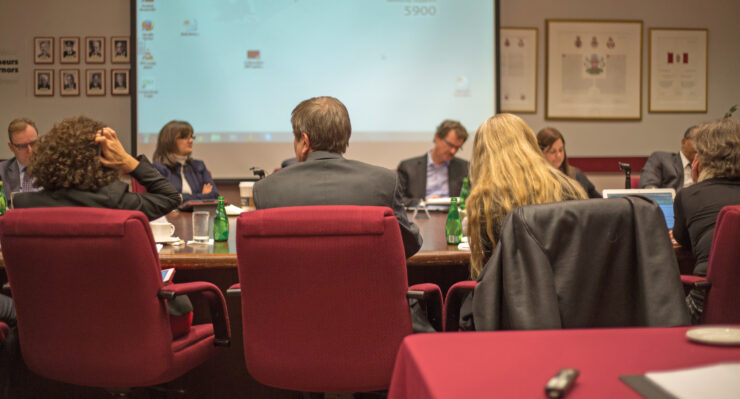The problem
AROUND THE WORLD amphibian life is on the decline. Many scientists believe we are currently amidst the sixth wave of a mass extinction. It is their conjecture that, unlike past extinction events, this wave is not due to natural phenomena, but is directly related to human activity that has led to the loss of natural habitats and pollution.
We use herbicides and insecticides poisonous to animals and insects to grow our food. These chemicals have dangerous effects on delicate ecosystems and their inhabitants. For example, some chemicals are causing frogs to artificially change sexes. Hundreds of species of frogs have already disappeared and more are dangerously close to meeting the same fate.
The researcher
University of Ottawa Prof. Vance Trudeau, the research chair of neuroendocrinology, studies how different types of hormones regulate reproduction in frogs.
The project
Many conservations and zoos are taking frogs into captivity in order to breed them in a safe area. When there is an adequate number, the frogs are released back into the wild.
Unfortunately, conservationists cannot breed frogs in captivity very well. This is where Trudeau, with his knowledge and research on reproductive hormones, has been able to develop an effective method to induce breeding in frogs.
The key
Trudeau’s research closely studies hormonal influence on the testes and ovaries of frogs. Knowing how these organs develop will improve our understanding of why certain pollutants can change the sex of amphibians. Since groups of hormones are conserved in evolution, the hormones in the frogs that he studies can be applied to other animals and amphibians. This research could shed light on the effects of certain chemicals and pollutants on reproductive aspects of frogs—particularly those that cause frogs to change sexes—which will help scientists breed the amphibians in captivity and prevent frogs species from becoming extinct.
-Michael Fonseca
Are you doing interesting science? Or do you have a professor who can’t stop talking about his research? Let us know at research@thefulcrum.ca




